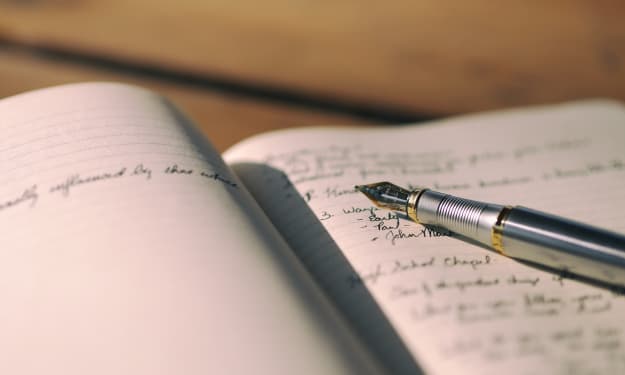A Beautiful Little Fool
To be beautiful or to be intelligent?

About 7 years ago, I read F. Scott Fitzgerald’s The Great Gatsby. I remembered reading alongside the rest of my junior class and being blown away as my English Literature teacher used it to educate us on a variety of literary devices. It was one of the first times I had ever read a book and realized that authors use fiction to inadvertently address societal issues. I haven’t touched the book since, yet I can’t forget the feeling of fascination I had as I read the book. I don’t remember many of the book’s details anymore, yet there is one quote that has stuck with me since I first picked up the book. Early in the book, Daisy shares her hopes of her daughter by stating,
“I hope she’ll be a fool—that’s the best thing a girl can be in this world, a beautiful little fool.”
I remember feeling stuck reading this. Arguing within myself, how true is this? Daisy herself throughout the book seemed to live out this statement, playing the role of a beautiful little fool herself as if pretending to be this would give her a better life in turn.
Growing up, I was described various times as a difficult child. Yet, I obeyed every rule that was placed in front of me, I attended church almost on a daily basis, volunteered in a variety of non-profit organizations, was a part of my high school’s choir and business club. I also never snuck out of my house nor attempted to do any kind of drugs or drink even a sip of alcohol. Overall, I would never have described myself as difficult, instead I felt I was overly compliant and obedient. So, why was I called difficult? Finally figuring out the answer shook me more, only teaching me that Daisy might have been on to something. The behavior that I displayed that had labeled me as a challenging child was that I “spoke too much”. Whether asking too many questions or stating what I believed to be obvious, my uncontrollable urge to speak my mind consistently classified me as problematic and overall difficult.
I couldn’t determine if I was told to be quiet because I was a child or because I was a girl. Nonetheless, Daisy challenged me to find out if acting a fool was truly the best for me. Would the world’s view of me change because I spoke less? What if instead of speaking what I thought to be true, I remained silent? And boy did I struggle for the following year or so; I was in constant turmoil as I pretended to be a fool only breaking character momentarily after. I lost a couple of friendships and relationships as I pretended to overlook pretentious attitudes or betrayal, but then snapping because I hated being played as a fool. I realized that I would much rather be called difficult than be called dumb. But why? Why does it have to be one or the other? Was there something in between that I was missing, that I didn’t understand yet? Why would Daisy hope for a fool rather than a child that would be labeled troublesome? Wouldn’t the latter be better?
As I was beginning my life in college far from my hometown, I decided I would once again attempt to act more like a “beautiful fool” to the strangers around me. I found it easier to play the part to people who didn’t know me. Most of the time, I hid the fact that I was studying Biology and striving to be a veterinarian. I acted whimsical and flirtatious, pretending life was nothing more than a romantic comedy. The first few years of college was overbearingly filled with adventures and gifts, mostly from the men I encountered. For example, the morning of my 20th birthday, the boy I had met the previous night brought me fresh bagels with lox and cream cheese because I had mentioned I had never tried it before. These kinds of incidents happened frequently. Was it because I acted like I knew nothing around them or pretended to be blown away by the simplest gestures and comments? Or was it that men loved the attention they received or the idea of spoiling someone they found attractive? One thing stood out, for sure, other girls did not appreciate an airhead. The girls I’d befriend thought of me as incapable of caring for myself or did not even attempt to get to know me at a deeper level. So, as the number of men or boys increased in my life, the less girls or women there were. Even with all the attention I received, I felt more alone.
So, how could a beautiful fool really be better? The most that would come of it, is the possibility of marrying a rich man, who would probably play her as well. The real problem for me is that I want more in life than being a wife. Although, I truly loved the idea of getting married one day, I did not want that to be all I achieved. I let the quote go eventually, feeling like it was a puzzle that I couldn’t quite figure out, but trying find a happy balance between beauty and intelligence.
However, recently, the quote has shown up in my life again. I now have two daughters and for both of their births I have thought of Daisy’s words. And I have decided this: I don’t want my daughters to be beautiful fools. If the world wants to believe that is what they are then let it be, but I will not be raising my daughters to choose to limit their intelligence because beauty might get them an easier life. Instead, I want to teach my daughters that there is a time to show off intelligence and a time to show off beauty. There may not be many opportunities to do both. The fact of the matter is that right now we are in an age where people, as in both men and women, don’t want to listen. Everyone wants to talk and share their opinions and stances and those are the moments that your beauty will be the only thing helping you make the most of a situation. But beauty alone will not help you make the best decisions. Even amongst all the information that is poured on us every day, we must learn to search for what is true and make our most educated choices then.
So, I hope for my daughters that they are learning and growing individuals, seeking to make good choices and choosing to be better tomorrow than they were today.
About the Creator
Stephanie Rosas
just your average writer writing about stuff.
Enjoyed the story? Support the Creator.
Subscribe for free to receive all their stories in your feed. You could also pledge your support or give them a one-off tip, letting them know you appreciate their work.






Comments (1)
nice title.. Worth!!!